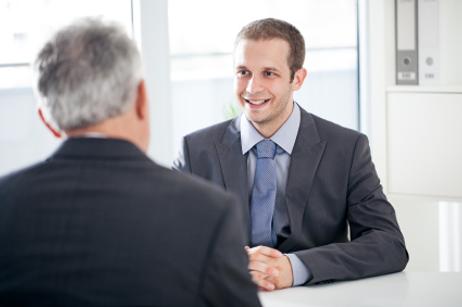Most of us job seekers don't have very much experience with interviews. I know that from my many years of being one of those people who interviewed applicants for positions at the firm I worked for back then. It was always obvious to me which candidates had prepared for their interviews, and which had not.
Personally, I remember being in the same boat myself. As I recall, I was unhappy with the position I held. Honestly, I cannot remember the reasons why I was unhappy, but I started looking for a new job. I emailed my resume replying to a couple of openings and managed to land an interview for one of them. I never prepared for the interview. I simply turned up and winged it. I just assumed that my resume would show who I was and what I offered. How wrong I was! It was the worst interview experience I have ever had. I had no clue about what the job entailed or what questions to ask. Now, since I don't want you to have a similar experience, let's review some of the things which you can do to prepare for your successful job interview at a private school.
What kind of questions will be asked?
I know that the title of this article is Asking Good Questions. So, you are probably asking yourself why questions which the interviewer will ask are relevant. Good question! The interviewer's questions are relevant because you can use them as jumping-off points for your own questions. Think about the questions which you know will be asked. Then make a list of those questions. When you do some role-playing in preparation for your interview, have the person who is playing the role of interviewer ask those questions. Practice using them as a starting point for your own questions. Aimee Bateman offers some suggestions in the following video.
Every interviewer appreciates being asked questions. After all, a good interview is a two-way street. Your future employer asks questions to be able to assess you. You ask questions so that you can understand the school and the position for which you are interviewing. Be aware that you will be judged, as indeed you are being judged constantly, on the quality of questions which you ask. So, what would be considered good questions in a private school job interview situation?
First of all, let's get the bad questions out of the way. That will help you focus on the good questions.
Bad Questions
Bad questions are essentially the wrong questions to ask the interviewer. Never ask questions which might impute anything negative about your present or former schools. The private school community is a small one. Everybody knows everybody. It just doesn't make sense to speak ill of colleagues, even though what you say may well be true. Any display of negative energy will be a potential red flag in your interview. Too many red flags will eliminate you from further consideration. A single red flag, no matter how minor or insignificant, could still be something your future employer might ask about when he checks your references. You certainly don't want to unleash a torrent of criticism from your old boss when he is asked why you disliked the faculty meal arrangements at your old school. Similarly, save questions about compensation until you have been offered the job. Questions about compensation are not wrong per se, just not appropriate at this stage of the employment process. The following video clip illustrates the perils of asking the wrong questions at your job interview.
Do your homework carefully before asking any question which could even remotely be considered negative. That means you need to find that trusted friend or mentor who helped you with your interview attire and did some role-playing with you. Ask him those questions which you aren't sure about. See if they sound negative to him.
Avoid questions which are irrelevant to the position which you are seeking. Unless they are part of small talk while standing in line waiting to get into the dining room, extraneous questions are best avoided.
The Characteristics of Good Questions
Good questions in a private school interview situation are the right questions to ask. They indicate some of the following characteristics and traits about you:
- Your passion for your subject
- Your knowledge of your subject
- Your enjoyment which comes from teaching young people
If you can ask questions which will highlight these basic professional characteristics, you will probably help your cause. But be careful not to cover areas which the interviewer has already asked about. You can expand or explain, but never repeat.
Let's frame some sample questions based on the characteristics listed previously:
Assuming that you teach classics, you might ask something such as "Would St. Agnes be agreeable to having its Latin students enter the National Latin Exam?"
or
Assuming that you teach French, ask something like "How did the French Club trip to Lyons last spring work out? Did the students learn a lot?"
Andrew LaCivita shows you how to ask questions at your job interview.
Each question indicates that you have done your homework about what has gone on at the school in your subject area. Let me say it again: researching your schools is a very important part of your interview preparation process. Be sure to ask your questions with genuine enthusiasm for and interest in the fact that St. Agnes' students have attained a high level of accomplishment in the subject. Implicit in the questions is your intent to build on this solid foundation and, hopefully, with the school's support and blessing, to take the students to even higher levels.
The objective with asking good questions at your job interview is to improve your chances of getting hired. Don't make the mistake of being silent. Don't assume, as I did years ago, that your credentials speak for themselves. Good questions help show your strengths in a favorable light. Good questions can make the difference between your being a finalist for the position or just being interviewed for it. How many questions should you have prepared to ask? I suggest that you have at least two questions well-researched and at the ready.
Asking good questions indicates your enthusiasm and keen interest in the position being offered. Don't assume that the interviewer can tell that you are enthusiastic. Demonstrate your enthusiasm by asking relevant, informed and incisive questions. How you perform in the interview will probably determine whether or not you are offered the job.
Questions? Contact me via Twitter. @privateschoolreview














